
Discover the Heart of Northern Cameroon: Ngaoundéré
Nestled in the Adamawa Plateau, Ngaoundéré is a city that perfectly blends natural beauty with rich cultural heritage. Known for its stunning hilly landscapes, this city is the gateway to some of the most breathtaking scenery in Cameroon. The region's unique topography is marked by rolling hills and lush greenery, making it a haven for nature enthusiasts and adventure seekers alike. Ngaoundéré is not just about its picturesque landscapes. The city is a cultural melting pot, home to diverse ethnic groups, including the Fulani people, who have a significant influence on the local way of life. Visitors can immerse themselves in the local culture by exploring traditional markets, visiting the Lamido's Palace, and experiencing the vibrant festivals that take place throughout the year. The city's rich history and cultural diversity provide a unique backdrop for a memorable travel experience. For those interested in wildlife, the nearby Benoue National Park offers an opportunity to see some of Africa's most iconic animals in their natural habitat. From elephants to lions, the park is a must-visit for any nature lover. The proximity of Ngaoundéré to this national park makes it an ideal base for exploring the natural wonders of northern Cameroon.
Local tips in Ngaoundéré
- Visit the Lamido's Palace to experience the traditional Fulani architecture and learn about the local culture.
- Don't miss the local markets, where you can find unique handicrafts and taste traditional Fulani cuisine.
- Plan a trip to Benoue National Park early in the morning for the best chance to see wildlife.
- Respect local customs and dress modestly, especially when visiting religious or traditional sites.
- Consider hiring a local guide to enhance your understanding of the region's history and culture.
Discover the Heart of Northern Cameroon: Ngaoundéré
Nestled in the Adamawa Plateau, Ngaoundéré is a city that perfectly blends natural beauty with rich cultural heritage. Known for its stunning hilly landscapes, this city is the gateway to some of the most breathtaking scenery in Cameroon. The region's unique topography is marked by rolling hills and lush greenery, making it a haven for nature enthusiasts and adventure seekers alike. Ngaoundéré is not just about its picturesque landscapes. The city is a cultural melting pot, home to diverse ethnic groups, including the Fulani people, who have a significant influence on the local way of life. Visitors can immerse themselves in the local culture by exploring traditional markets, visiting the Lamido's Palace, and experiencing the vibrant festivals that take place throughout the year. The city's rich history and cultural diversity provide a unique backdrop for a memorable travel experience. For those interested in wildlife, the nearby Benoue National Park offers an opportunity to see some of Africa's most iconic animals in their natural habitat. From elephants to lions, the park is a must-visit for any nature lover. The proximity of Ngaoundéré to this national park makes it an ideal base for exploring the natural wonders of northern Cameroon.
When is the best time to go to Ngaoundéré?
Iconic landmarks you can’t miss
Cameroon Reunification Monument
A landmark in Yaoundé symbolizing Cameroon's reunification, rich history, and cultural heritage, offering a unique glimpse into the nation's identity.
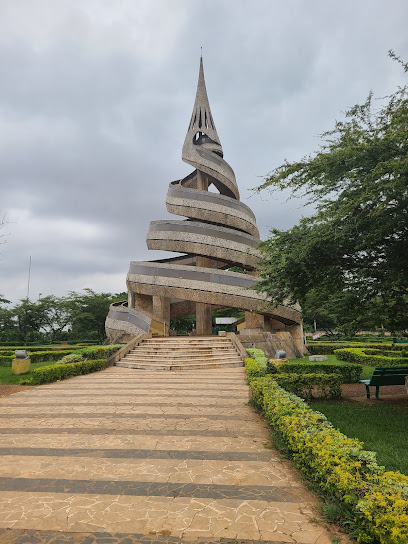
Statue of Charles Atangana
Discover the Statue of Charles Atangana in Yaoundé, a tribute to Cameroonian heritage and a symbol of national pride.
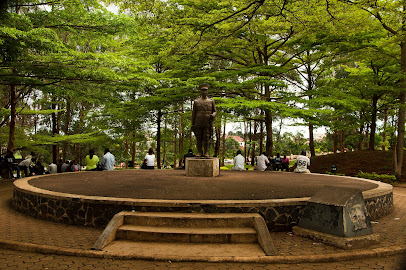
Ranch de Ngaoundaba
Discover Cameroon's hidden gem: Ranch de Ngaoundaba, where nature meets culture in a stunning volcanic crater setting. A perfect escape near Ngaoundéré.
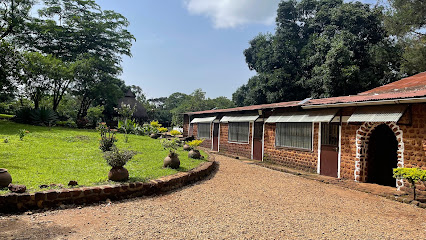
I love my country Cameroon round about
Experience Cameroonian pride at Yaoundé's 'I Love My Country' Roundabout: a vibrant landmark celebrating culture, history, and national unity.
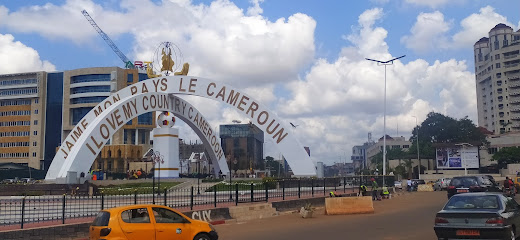
Lamidat de Ngaoundere
Discover the rich history and cultural heritage of the Adamawa Region at the Lamidat de Ngaoundere in Cameroon.
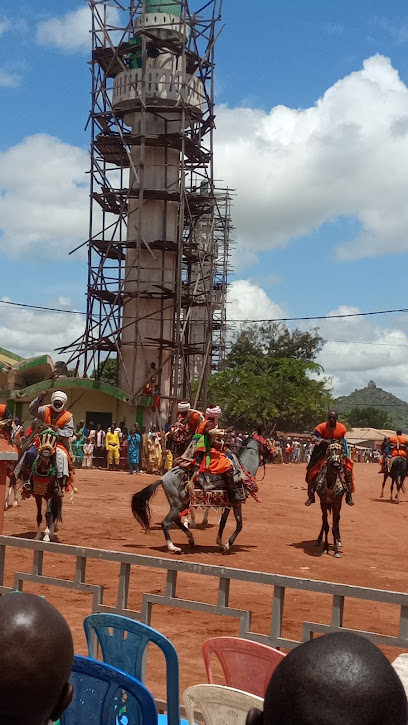
Ngaoundéré Airport
Your gateway to exploring the Adamawa Region of Cameroon, connecting you to vibrant culture and stunning landscapes.
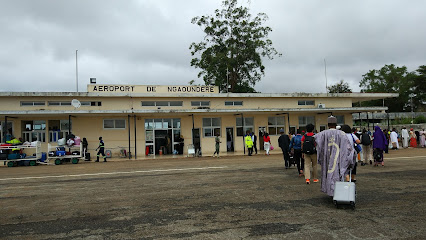
Grande Mosquée de Ngaoundéré
Discover the Grande Mosquée de Ngaoundéré, a captivating blend of culture and faith in the heart of Cameroon, showcasing stunning Islamic architecture.
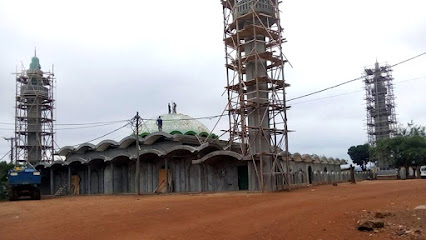
Adamaoua Hôtel
Experience comfort and convenience at Adamaoua Hôtel, your ideal starting point for exploring the vibrant city of Ngaoundéré and the Adamaoua Region.

Falaise de Ngaoundere
Discover the breathtaking views from Falaise de Ngaoundere, a natural landmark in Cameroon's Adamawa Region. A must-see for nature lovers!
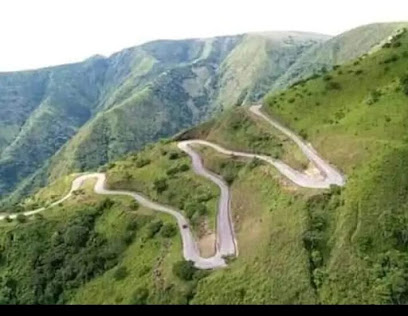
Monument j'aime mon pays
A modern landmark in Yaoundé, celebrating Cameroon's unity, diversity, and national pride through art and symbolism.
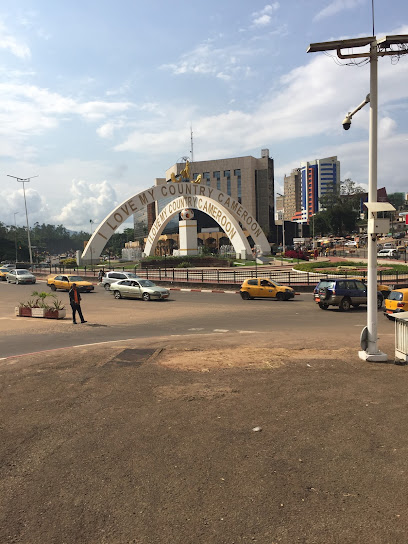
Lac Municipal de Ngaoundere 3eme
Discover Ngaoundere's tranquil Lac Municipal: a blend of nature, culture, and history in Cameroon's Adamawa Region.
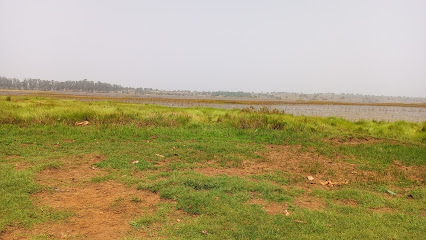
Quartier Haut Plateau
Experience tranquility and culture in Quartier Haut Plateau, Ngaoundere, a serene gated community surrounded by natural beauty and warm hospitality.

FALAISE DE NGAOUNDÉRÉ
Discover breathtaking views and rich biodiversity at Falaise de Ngaoundéré, a natural marvel in Cameroon's Adamawa Region.
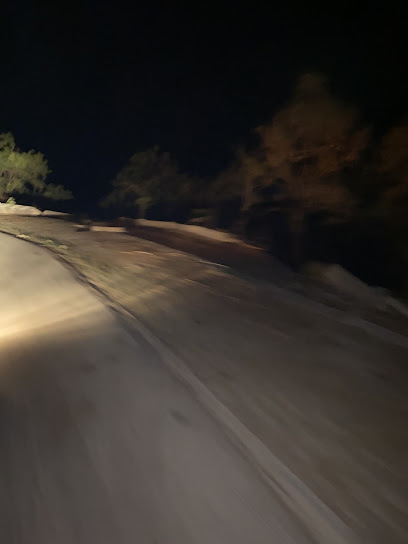
Monts Ngaoundéré
Hike the iconic Monts Ngaoundéré for panoramic views and a glimpse into Cameroon's rich history and culture.

Espace forain de Ngaoundéré
Experience the vibrant culture of Ngaoundéré at this bustling marketplace filled with local crafts, food, and entertainment.
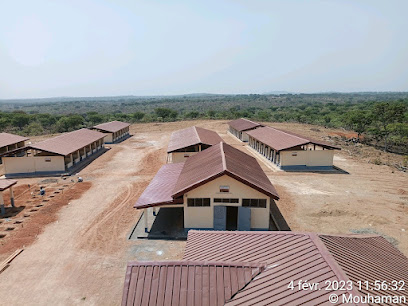
Unmissable attractions to see
Ranch de Ngaoundaba
Explore the untouched beauty and vibrant culture of Ranch de Ngaoundaba, a top tourist attraction in Cameroon offering adventure and relaxation.
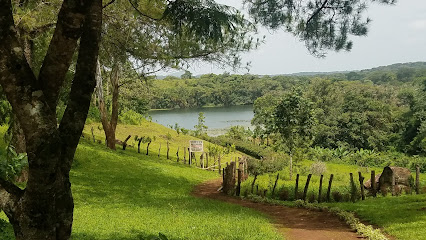
Lamidat de Ngaoundere
Explore the cultural treasures of Lamidat de Ngaoundere, a local history museum showcasing the rich heritage of Cameroon.
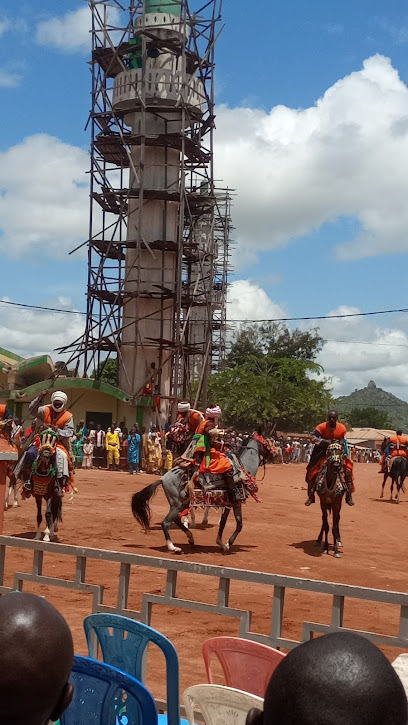
Tello Waterfalls (Chutes de Telle)
Explore the breathtaking Tello Waterfalls in Bazanga, a natural preserve offering stunning views, hiking trails, and a serene escape into nature's beauty.
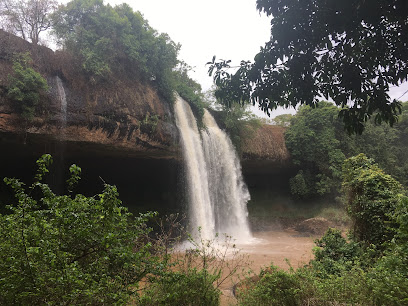
Art Callebasse Sabon Gari
Discover the heart of Cameroonian craftsmanship at Art Callebasse Sabon Gari in Ngaoundéré, showcasing unique handmade treasures and local artistry.
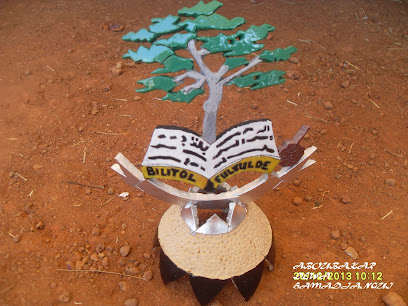
Falaise de Ngaoundere
Discover Falaise de Ngaoundere, a breathtaking natural attraction in Cameroon featuring stunning cliffs and panoramic views perfect for nature lovers and adventure seekers.
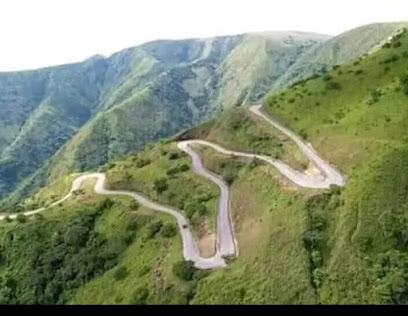
ROND POINT MRS
Experience the vibrant culture and community spirit at Rond Point Mrs, a must-visit tourist attraction in Ngaoundéré, Cameroon.

Rapide De Dang
Explore the cultural depths of Cameroon at Rapide De Dang Museum in Ngaoundere, where history and heritage come alive.
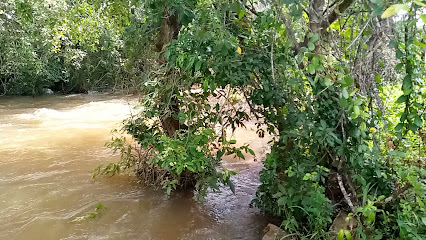
Lac Mballang
Experience the serene beauty of Lac Mballang, a tranquil lake in Balam, Cameroon, perfect for nature lovers and adventure seekers alike.
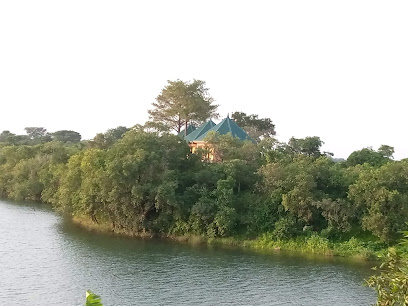
Rapide de Dang
Discover the breathtaking rapids and tranquil landscapes at Rapide de Dang, a must-visit natural gem in Ngaoundere, Cameroon.

vina Garden
Experience serenity at Vina Garden in Ngaoundere, where nature and tranquility converge amidst vibrant flora and lush landscapes.
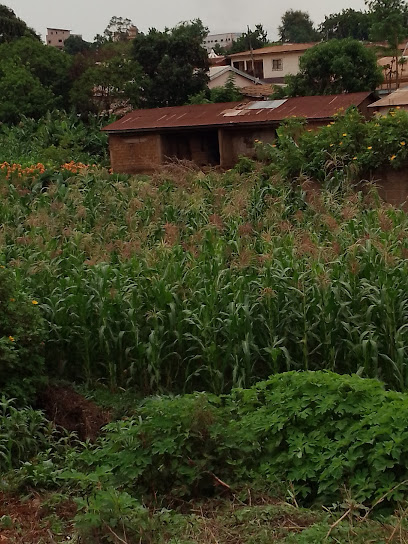
FALAISE DE NGAOUNDÉRÉ
Experience the breathtaking beauty and cultural richness of Falaise de Ngaoundéré, a must-visit natural wonder in Cameroon.
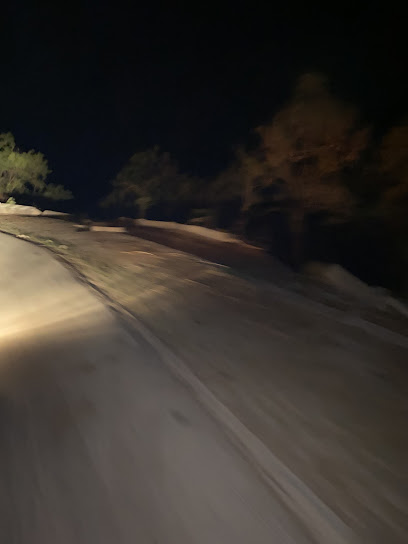
Lac de Dang
Explore the serene beauty of Lac de Dang in Ngaoundere, Cameroon—a perfect escape for nature lovers and tranquility seekers.
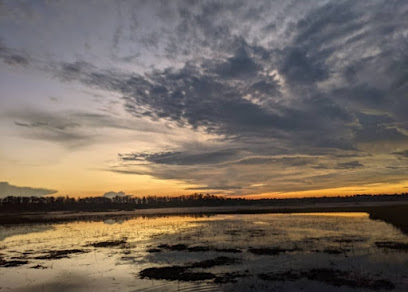
Lac Piou
Experience the tranquil beauty of Lac Piou, a stunning lake near Ngaoundere, perfect for relaxation, adventure, and nature exploration.
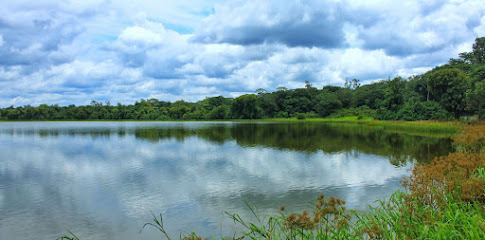
Lac Bini
Discover the serene beauty of Lac Bini in Ngaoundere, a tranquil lake surrounded by lush landscapes and vibrant local culture, perfect for relaxation and exploration.
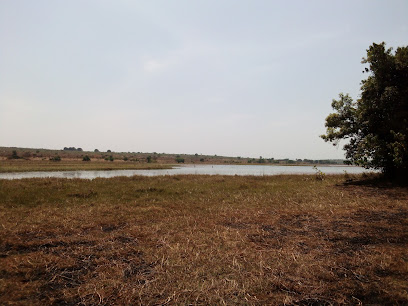
Chutes de Wara
Discover the breathtaking Chutes de Wara, a stunning waterfall in Mbang, Cameroon, perfect for nature lovers and adventure seekers.
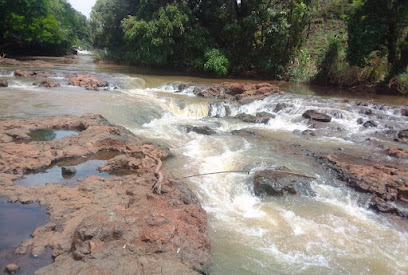
Essential places to dine
SUPER KILICHI
Experience authentic Cameroonian cuisine at Super Kilichi in Ngaoundéré—where tradition meets flavor in every bite.
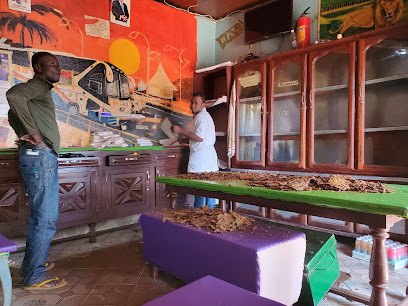
Restaurant CEMAC
Savor the authentic flavors of Cameroon at Restaurant CEMAC – a culinary gem in Ngaoundere’s Commercial Centre.
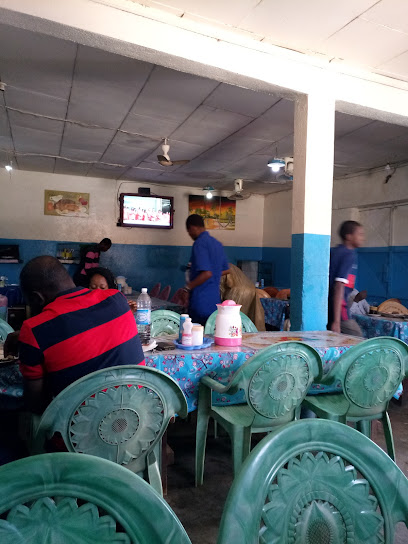
SOCADIS
Discover SOCADIS in Ngaoundere – where local flavors meet affordable dining experiences for every traveler.
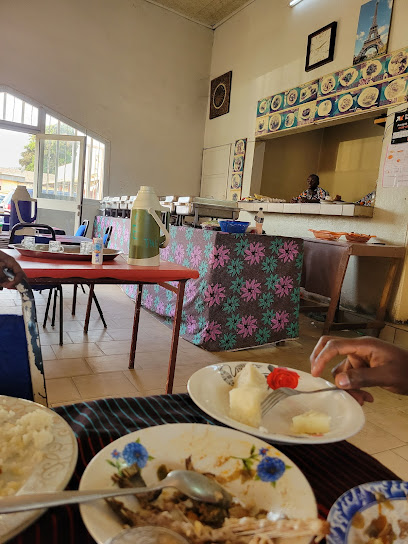
Le Safari
Discover authentic Cameroonian flavors at Le Safari, where every dish tells a story and every visit is memorable.
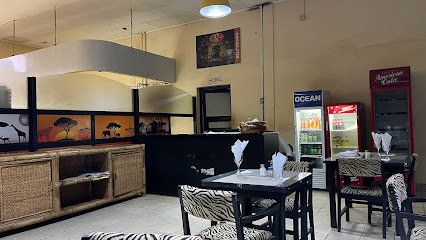
Coffee Shop
Experience comfort and flavor at Ngaoundere's charming coffee shop—a perfect blend of local culture and great brews.
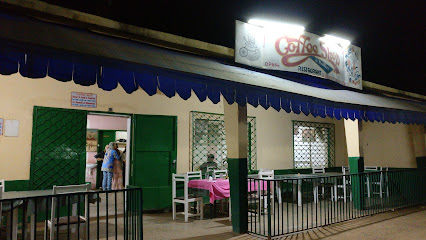
La Plazza Restaurant
Experience authentic Cameroonian flavors at La Plazza Restaurant in Ngaoundere – where every meal tells a story.
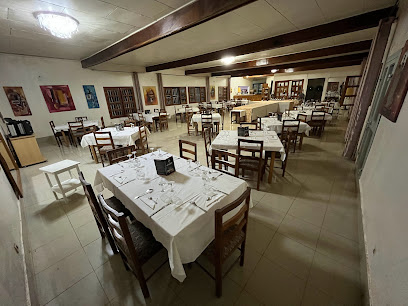
Restaurant Gass
Experience authentic Cameroonian cuisine at Restaurant Gass in Ngaoundere - a cozy spot for delicious meals at affordable prices.
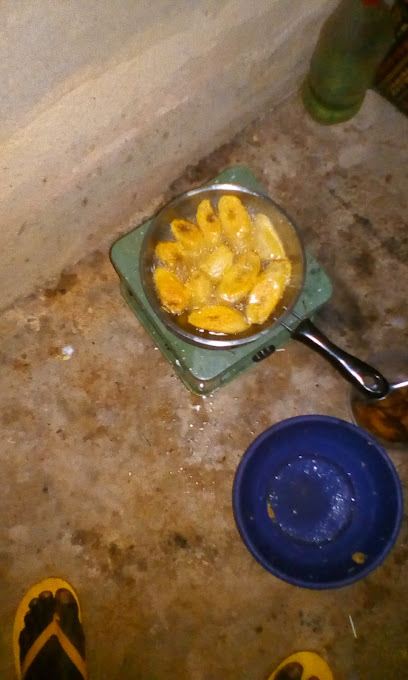
Restaurant Universitaire
Experience authentic Cameroonian flavors at Restaurant Universitaire in Ngaoundere - where taste meets affordability.
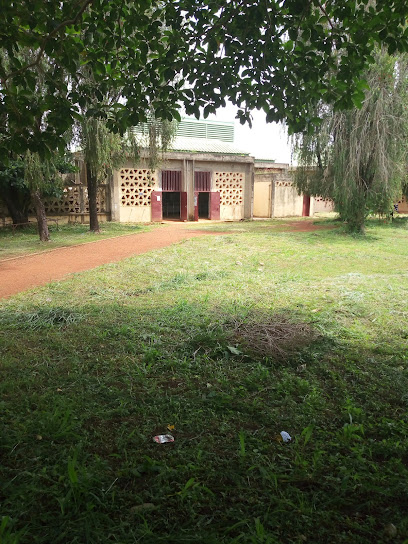
مطعم ديلي فود ناغروندي
Experience authentic Cameroonian cuisine at مطعم ديلي فود ناغروندي in Ngaoundere - where flavor meets culture.
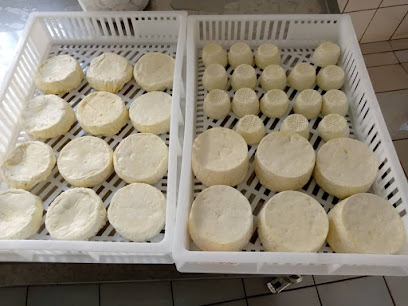
Restaurant All Medine
Experience authentic Cameroonian cuisine at Restaurant All Medine in Ngaoundere - where every dish tells a story.
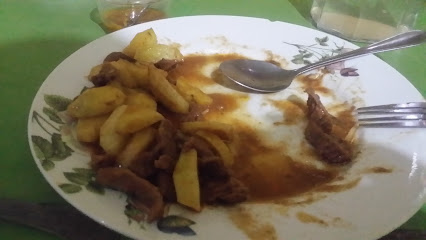
Restaurant LA KRIBIENNE
Experience authentic Cameroonian cuisine at Restaurant LA KRIBIENNE in Ngaoundere - where every dish tells a story.
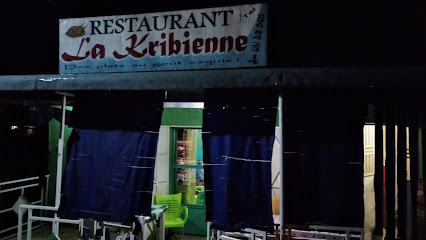
Restaurant Le Verger Ngaoundere
Experience the vibrant flavors of Cameroon at Restaurant Le Verger Ngaoundere - where local meets international cuisine in a cozy setting.
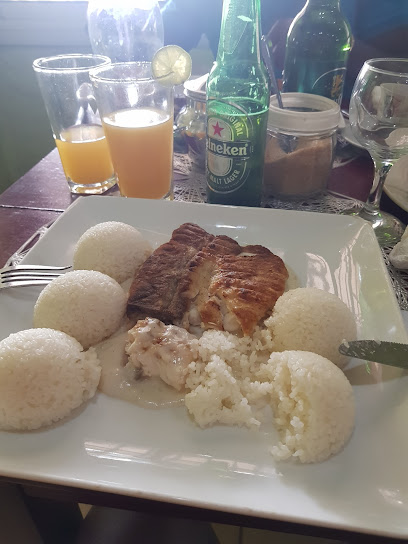
COMIDA
Experience authentic Cameroonian cuisine at COMIDA in Ngaoundere – a delightful blend of flavors and culture awaits every visitor.
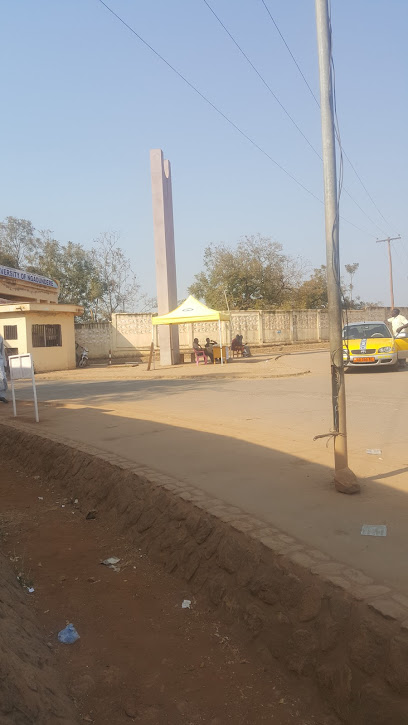
Restaurant Le Tintamarre
Discover the rich flavors of Cameroon at Restaurant Le Tintamarre in Ngaoundere, where every meal is a celebration of culinary artistry.
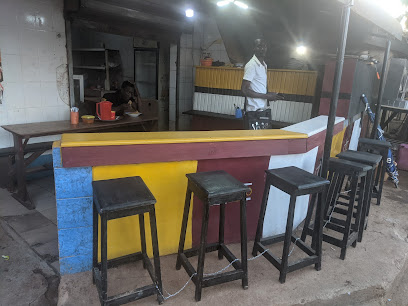
Restaurant LE BALISIER - HOTEL GRAND CHATEAU
Experience the rich flavors of Cameroon at Restaurant LE BALISIER - where local meets international cuisine in an inviting atmosphere.
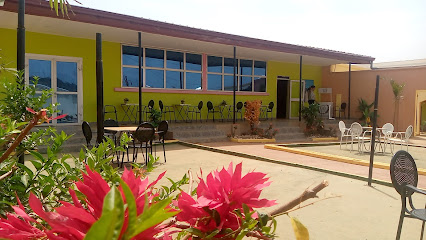
Markets, malls and hidden boutiques
Petit Marché
Discover the heart of Ngaoundéré at Petit Marché, where vibrant local culture meets an array of unique shopping experiences.
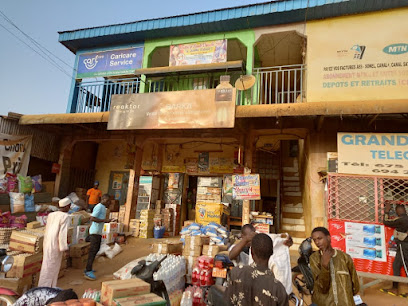
Shagari grand_marche
Experience the vibrant marketplace of Shagari Grand Marché, where local culture and unique shopping collide in Ngaoundéré.
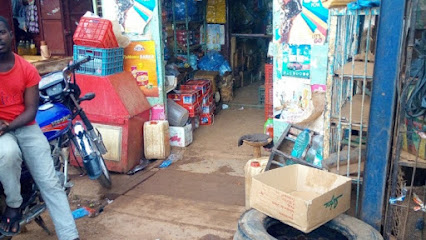
ancien magasin Pam
Explore the essence of Cameroonian craftsmanship at Ancien Magasin Pam, a charming home goods store in Ngaoundéré offering unique local treasures.
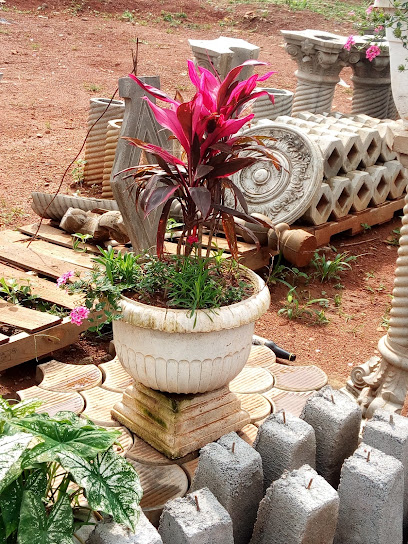
Abass Boutique
Explore Abass Boutique in Ngaoundéré for unique fashion and local craftsmanship, a true reflection of Cameroonian culture.
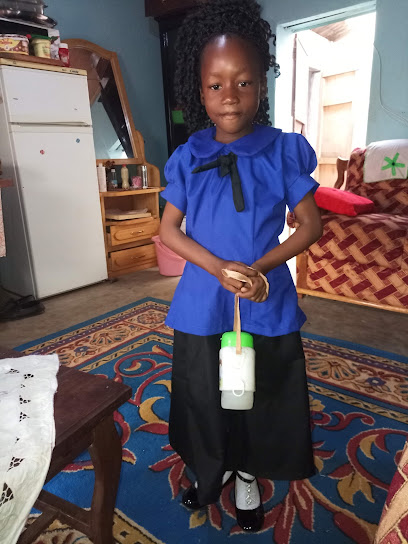
Boutique Miel
Discover the vibrant flavors of Cameroon at Boutique Miel, Ngaoundere's premier produce market, where fresh local produce meets a lively cultural atmosphere.

Mbideng 4 boutique
Explore Mbideng 4 Boutique in Ngaoundere for a unique blend of local culture, shopping, and delicious culinary delights.
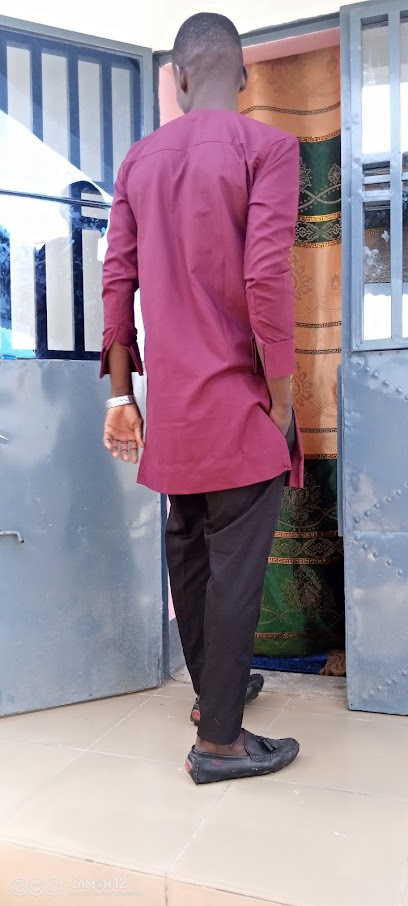
SUPER ÉLÉGANCE
Explore the exquisite collection of clothing at SUPER ÉLÉGANCE in Ngaoundere, where culture meets contemporary fashion for an unforgettable shopping experience.
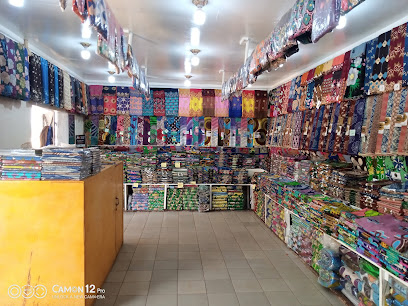
SOURCE DU PAYS SA Ngaoundéré
Discover the vibrant Source Du Pays in Ngaoundéré - a shopping paradise filled with local culture, unique crafts, and delightful dining experiences.
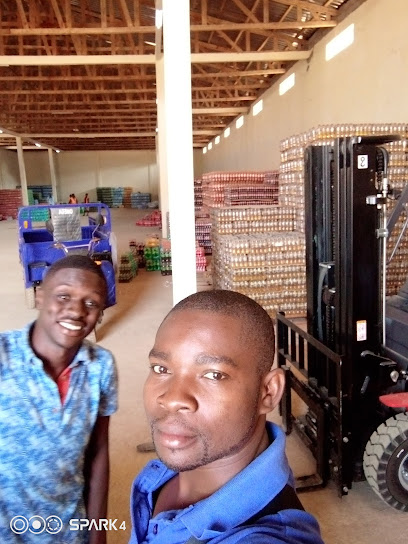
VINA BOUTIQUE
Explore the vibrant Vina Boutique, a lively produce market in Ngaoundéré, where fresh local flavors and culture await every visitor.
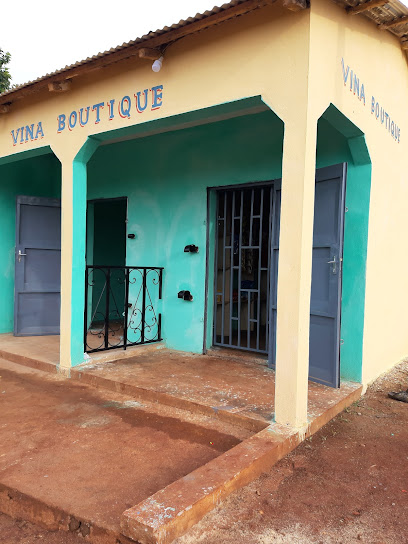
Boutique Alimentation
Explore Boutique Alimentation in Ngaoundere for an authentic shopping experience filled with local flavors, crafts, and vibrant community spirit.

Raoudah Boutiqe
Explore unique fashion at Raoudah Boutique in Ngaoundéré, where local style meets contemporary trends in a vibrant shopping experience.
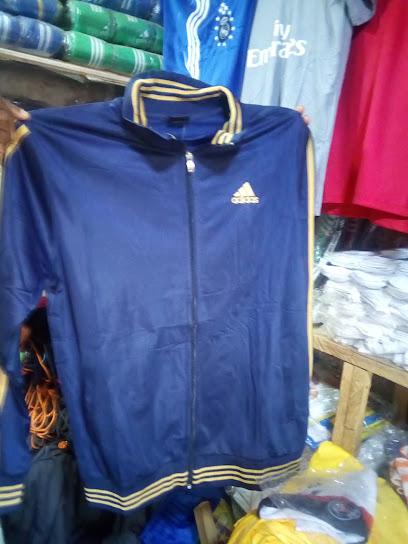
Boutique Moussa bamenda
Discover a vibrant shopping experience at Boutique Moussa in Ngaoundere, where local culture meets variety and charm.
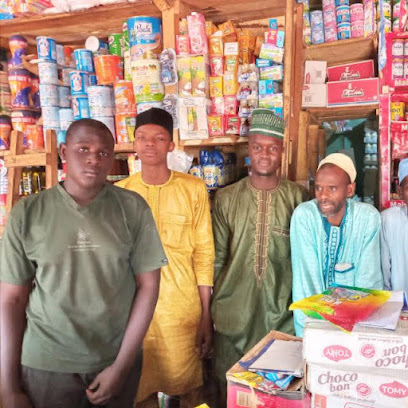
Adamaoua Bazin center
Discover the vibrant culture of Cameroon through unique fashion accessories at the Adamaoua Bazin Center in Ngaoundéré.
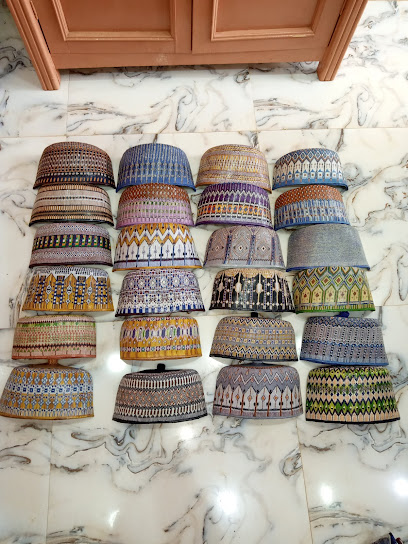
Boutique faouné
Explore Boutique Faouné in Ngaoundéré for stunning handcrafted jewelry that captures the essence of local culture and artistry.
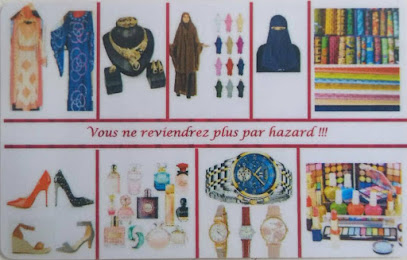
Marques d'Origines
Explore the leading electronics store in Ngaoundere, offering a vast selection of the latest gadgets and expert advice for all your tech needs.
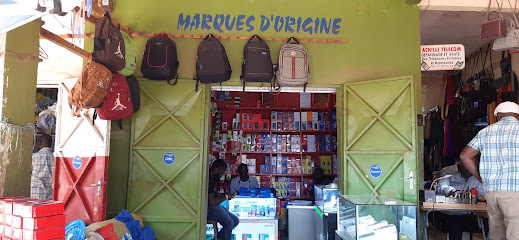
Essential bars & hidden hideouts
Bar Laitier
Discover the charming Bar Laitier in Ngaoundere, where local flavors meet a cozy atmosphere for an unforgettable experience.
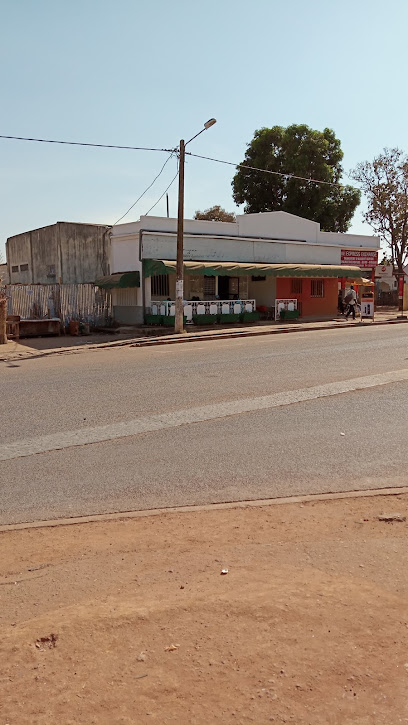
AT THE BAR MANAGER
Discover the vibrant nightlife of Ngaoundere at AT THE BAR MANAGER, where local culture meets a lively atmosphere and refreshing drinks.
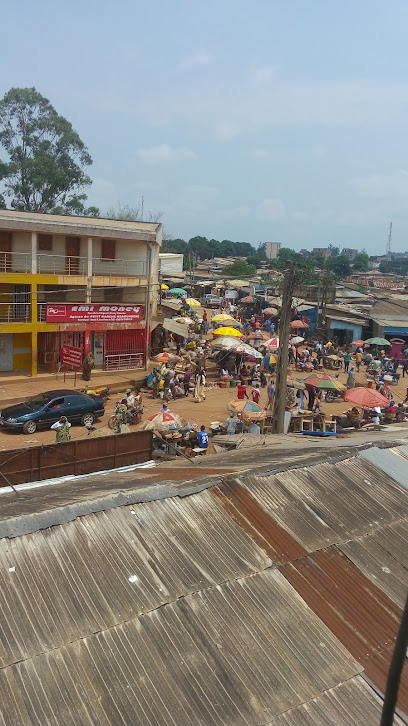
Drink House
Experience the vibrant nightlife of Ngaoundere at Drink House, where refreshing beverages and a lively atmosphere await you.
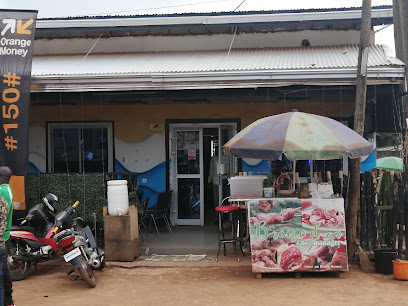
Mankom Bar
Discover the lively atmosphere of Mankom Bar in Ngaoundere, where local charm meets refreshing drinks and unforgettable experiences.

Le Saphir Bar
Discover the vibrant nightlife at Le Saphir Bar in Ngaoundéré, where locals and travelers unite over drinks and laughter.

Gadourou BAR
Experience the vibrant nightlife of Ngaoundere at Gadourou BAR, where local flavors and lively atmosphere come together.
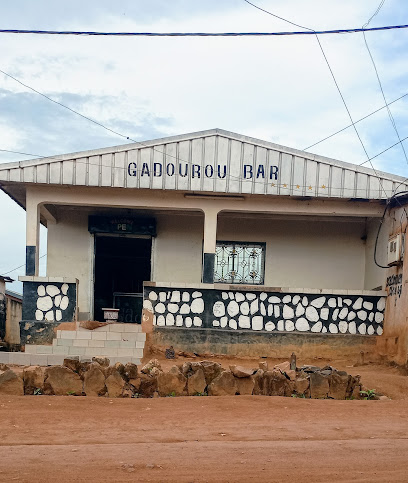
NEW TOWN snack bar
Discover the lively ambiance and delicious local snacks at NEW TOWN Snack Bar in Ngaoundere, where every visit is a taste of Cameroonian culture.
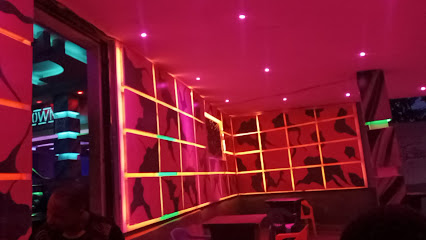
Krystal
Experience the lively atmosphere and local flavors at Krystal Bar, a must-visit destination in Ngaoundere for travelers seeking a taste of Cameroonian nightlife.
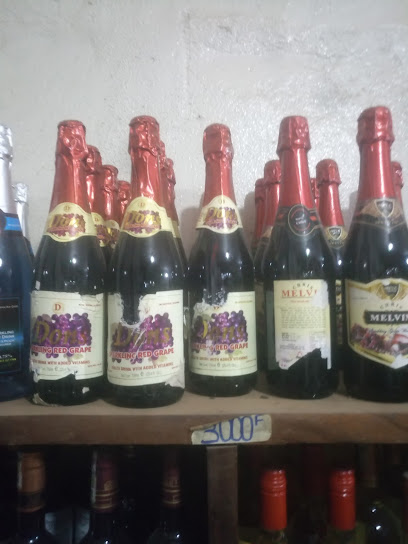
Sofitel Bar
Discover the charm of Sofitel Bar in Ngaoundéré, where cozy ambiance meets a delightful selection of drinks for an unforgettable night out.

Snack Bar L'opium
Experience the vibrant nightlife and local flavors at Snack Bar L'opium in the heart of Ngaoundere.
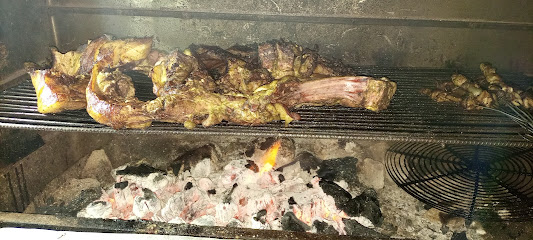
Mon Blanc
Unwind at Mon Blanc, a vibrant bar in Ngaoundere offering a lively atmosphere, local drinks, and a taste of the region's nightlife.

Le Rocher
Discover Le Rocher in Ngaoundere, a lively bar that blends local culture with refreshing drinks, perfect for unwinding after a day of exploration.
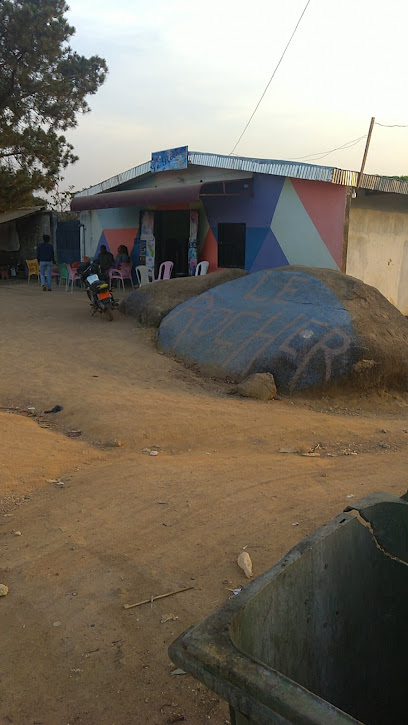
Le Saphir
Experience the vibrant nightlife at Le Saphir, a premier bar in Ngaoundere, where delicious drinks and local culture come together.

BUMJERE
Experience the vibrant nightlife of Ngaoundere at BUMJERE, where local culture meets a lively bar atmosphere.

Excellence Bar
Discover the vibrant energy of Excellence Bar in Ngaoundere, a local hotspot for drinks and socializing with friends in a lively atmosphere.

Local Phrases
-
- HelloSannu
[sahn-noo] - GoodbyeSannu da zuwa
[sahn-noo dah zoo-wah] - YesEh
[eh] - NoA'a
[ah-ah] - Please/You're welcomeDon Allah
[dohn ah-lah] - Thank youNa gode
[nah goh-deh] - Excuse me/SorrySamu da kai
[sah-moo dah kai] - How are you?Yaya ke
[yah-yah keh] - Fine. And you?Lafiya. Kana yaya?
[lah-fee-yah. kah-nah yah-yah] - Do you speak English?Mun ƙarancin Turanci?
[moon kah-rahn-cheen too-rahn-chee] - I don't understandBa na fahimci
[bah nah fah-heem-chee]
- HelloSannu
-
- I'd like to see the menu, pleaseZan iya dubawa menu, don Allah
[zahn ee-yah doo-bah-wah meh-noo, dohn ah-lah] - I don't eat meatBa na tsaƙi abinci
[bah nah tsah-kee ah-been-chee] - Cheers!Aikin saude!
[eye-keen sah-oo-day] - I would like to pay, pleaseZan iya kawo kuɗi, don Allah
[zahn ee-yah kah-woh koo-dee, dohn ah-lah]
- I'd like to see the menu, pleaseZan iya dubawa menu, don Allah
-
- Help!Taimaka!
[tye-mah-kah] - Go away!Juya!
[joo-yah] - Call the Police!Kira matakai!
[kee-rah mah-tah-kai] - Call a doctor!Kira mai jirgin sama!
[kee-rah my jeer-geen sah-mah] - I'm lostNa yi tafiya
[nah yee tah-fee-yah] - I'm illIna ƙarya
[ee-nah kah-ree-yah]
- Help!Taimaka!
-
- I'd like to buy...Zan sami...
[zahn sah-mee] - I'm just lookingNa zama nuna
[nah zah-mah noo-nah] - How much is it?Shi ne kudi?
[shee neh koo-dee] - That's too expensiveWannan ya fi kudi
[wah-nahn yah fee koo-dee] - Can you lower the price?Ka iya sake muku kudi?
[kah ee-yah sah-keh moo-koo koo-dee]
- I'd like to buy...Zan sami...
-
- What time is it?Yaya lokaci?
[yah-yah loh-kah-chee] - It's one o'clockShida ne
[shee-dah neh] - Half past (10)Da rabi (goma)
[dah rah-bee goh-mah] - MorningSafe
[sah-fay] - AfternoonYamma
[yahm-mah] - EveningYamma
[yahm-mah] - YesterdayJibi
[jee-bee] - TodayYau
[yah-oo] - TomorrowGobe
[goh-beh] - 1Daya
[dah-yah] - 2Biyu
[bee-yoo] - 3Uku
[oo-koo] - 4Hudu
[hoo-doo] - 5Biɗa
[bee-dah] - 6Shida
[shee-dah] - 7Bakwai
[bah-kwai] - 8Takwas
[tah-kwahs] - 9Tara
[tah-rah] - 10Goma
[goh-mah]
- What time is it?Yaya lokaci?
-
- Where's a/the...?Ina...
[ee-nah] - What's the address?Yaya adireshin?
[yah-yah ah-dee-reh-sheen] - Can you show me (on the map)?Ka iya nuna min (a cikin rubutu)?
[kah ee-yah noo-nah meen (ah chee-keen roo-boo-too)] - When's the next (bus)?Yaya lokacin (motar)?
[yah-yah loh-kah-cheen (moh-tahr)] - A ticket (to ....)Waya (zuwa ....)
[wah-yah (zoo-wah)]
- Where's a/the...?Ina...
History of Ngaoundéré
-
Ngaoundéré, also known as N'Gaoundéré, was founded in the 19th century by the Fulani people. The city served as a strategic location due to its position at the crossroads of trade routes linking northern and southern Cameroon, as well as its proximity to the Adamawa Plateau. The Fulani established the city as a hub for commerce and culture, which has influenced its development over the years.
-
One of the most prominent historical landmarks in Ngaoundéré is the Lamido's Palace. Built in the late 19th century, the palace is the traditional residence of the Lamido, the local Fulani ruler. The palace complex includes traditional architecture, craft workshops, and a mosque, reflecting the city's Islamic heritage. The Lamido's Palace remains a vital cultural and political center in Ngaoundéré.
-
In the late 19th and early 20th centuries, Ngaoundéré came under German colonial rule. The Germans established administrative posts and introduced infrastructure projects, including roads and communication networks. This period marked significant changes in the city's administration and development, with lasting impacts on its urban landscape.
-
After World War I, Ngaoundéré became part of the French mandate of Cameroon. The French continued to develop the city's infrastructure and educational institutions. Ngaoundéré played a role in the broader movement for Cameroon's independence, which was achieved in 1960. Post-independence, the city has grown and modernized while retaining its cultural heritage.
-
Founded in 1993, the University of Ngaoundéré has become a significant educational institution in the region. The university contributes to the city's reputation as a center for learning and research, attracting students and scholars from across Cameroon and beyond. Its presence has had a profound impact on the local economy and culture.
-
Ngaoundéré is known for its vibrant cultural festivals, which celebrate the city's diverse heritage. The Nguon Festival, held every two years, is a major event that showcases traditional dances, music, and crafts of the Fulani people. These festivals are not only a display of cultural pride but also an opportunity for visitors to experience the rich traditions of Ngaoundéré.
-
In recent years, Ngaoundéré has seen significant economic growth and modernization. The city's strategic location continues to make it a key commercial hub. Investments in infrastructure, including transportation and communication networks, have facilitated this growth. Despite modernization, Ngaoundéré has managed to preserve its historical and cultural identity.
Ngaoundéré Essentials
-
Ngaoundéré is accessible via the Ngaoundéré Airport, which has domestic flights connecting to the major cities in Cameroon, such as Yaoundé and Douala. International travelers can fly into Yaoundé Nsimalen International Airport or Douala International Airport and then take a domestic flight or travel by road. The city is also reachable by train from Yaoundé, with a scenic route operated by Camrail. Buses and private car hires are additional options for reaching Ngaoundéré from other parts of Cameroon.
-
Within Ngaoundéré, you can get around using taxis, which are plentiful and relatively inexpensive. Motorcycle taxis, known locally as 'benskins,' are a common mode of transport for shorter distances. Public minibuses operate on fixed routes and are an affordable option. Renting a car is also possible, though it is advisable to hire a local driver to navigate the city's roads and traffic.
-
The official currency in Ngaoundéré is the Central African CFA Franc (XAF). Credit cards are accepted in some hotels, restaurants, and larger shops, but it is advisable to carry cash for smaller establishments and markets. ATMs are available in the city, though it is wise to withdraw sufficient cash beforehand, especially if you plan to travel to more remote areas.
-
Ngaoundéré is generally safe for tourists, but like any city, it is important to stay vigilant. Avoid walking alone at night, especially in less populated areas. Some neighborhoods have higher crime rates, particularly for petty theft and pickpocketing; avoid areas that appear unsafe and always keep an eye on your belongings. It is recommended to use registered taxis or trusted transport options.
-
In case of emergency, dial 117 for police assistance and 112 for medical emergencies. Ngaoundéré has a central hospital and several clinics where you can receive medical care. It is advisable to have travel insurance that covers medical emergencies. Pharmacies in the city offer a range of medications for minor health issues.
-
Fashion: Do dress conservatively, especially when visiting religious sites. Avoid wearing revealing clothing. Religion: Do respect local customs and religious practices. Remove your shoes when entering mosques or homes if requested. Public Transport: Do be courteous and patient when using public transport. Don't haggle aggressively with taxi drivers. Greetings: Do greet people with a handshake or a friendly nod. Use titles and last names unless invited to use first names. Eating & Drinking: Do try local dishes and accept food offerings graciously. Don't refuse hospitality, as it is considered impolite.
-
To experience Ngaoundéré like a local, visit the bustling central market where you can purchase a variety of goods and interact with residents. Engage in local customs and try traditional dishes such as 'bouillon' and 'ndolé.' Take a stroll through the scenic Lamido Palace and experience the cultural heritage of the Fulani people. Consider visiting nearby natural attractions like the Tello Waterfalls and the Vina Valley for a taste of the region's natural beauty.
Trending Landmark in Ngaoundéré
-
Cameroon Reunification Monument
-
Statue of Charles Atangana
-
Ranch de Ngaoundaba
-
I love my country Cameroon round about
-
Lamidat de Ngaoundere
-
Ngaoundéré Airport
-
Grande Mosquée de Ngaoundéré
-
Adamaoua Hôtel
-
Falaise de Ngaoundere
-
Monument j'aime mon pays
-
Lac Municipal de Ngaoundere 3eme
-
Quartier Haut Plateau
-
FALAISE DE NGAOUNDÉRÉ
-
Monts Ngaoundéré
-
Espace forain de Ngaoundéré
Nearby Cities to Ngaoundéré
-
Things To Do in Garoua
-
Things To Do in Yola
-
Things To Do in Bertoua
-
Things To Do in Foumban
-
Things To Do in Carnot
-
Things To Do in Maroua
-
Things To Do in Bafia
-
Things To Do in Bafoussam
-
Things To Do in Bamenda
-
Things To Do in Mbouda
-
Things To Do in Dschang
-
Things To Do in Yaoundé
-
Things To Do in Nkongsamba
-
Things To Do in Maiduguri
-
Things To Do in Mamfe








